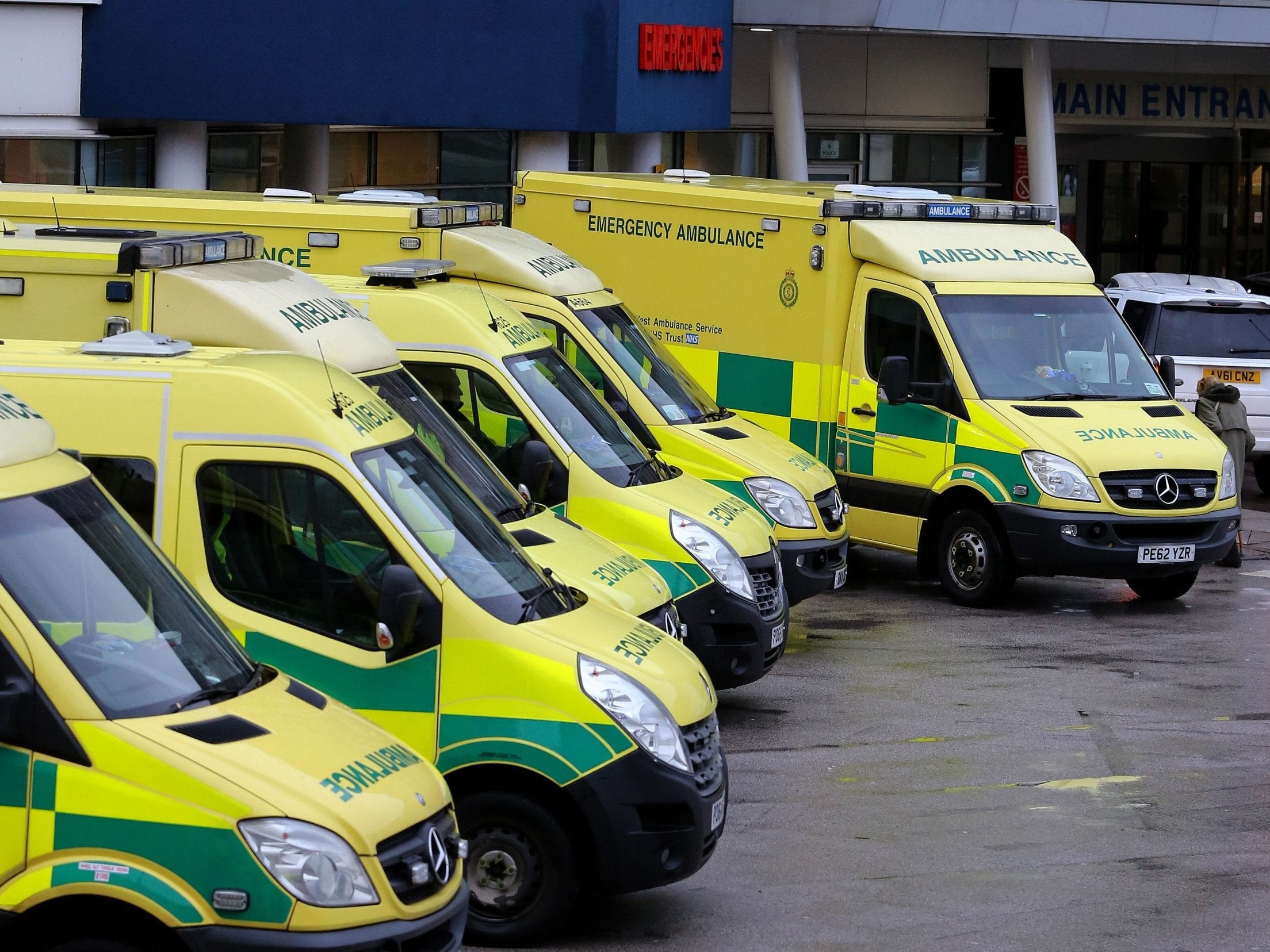Private ambulances increasingly used by NHS ‘putting patients at risk’, damning report finds
In one example of poor care an 'extremely confused' dialysis patient was left to wander streets

A damning report has warned that the increasing use of private ambulances is leading to examples of poor care, including a dialysis patient left to wander the streets.
Private ambulances are being used by the NHS more and more to transport patients to appointments and hospital, and to respond to emergency 999 calls.
But the Care Quality Commission (CQC) said it was concerned about the quality of care, staff training and use of medicines.
Inspectors gave a number of examples of poor practice, including one provider who was “based in a hotel room and did not store controlled drugs appropriately, a paramedic who had their drug bag under their bed in a B&B, and morphine books with pages missing, illegible entries and incorrect information”.
In another example of poor care, one provider was transporting dialysis patients with no policies in place, no monitoring of transport time, and no monitoring of fluid, nutrition or toilet breaks.
NHS at 70: demonstration and celebration march to mark anniversary
Show all 18The report added: “Some patient transport services were operating in a manner more like a taxi than an ambulance service.”
Inspectors said a lack of training meant staff were unable to recognise safeguarding concerns.
“In one example, an extremely confused dialysis patient was found wandering in the street by neighbours, as the crew had not made sure that he got into his home safely,” they said in the report.
The CQC warned that some private firms are failing to take regulation seriously and do not always ensure the safety of patients.
In specific examples, the CQC said some private firms do not carry out proper checks on staff, including Disclosure and Barring Services (DBS), driving licence, photo identification, references and health checks.
Levels of completed mandatory training also varied hugely, as did the quality, consistency and monitoring of the training, particularly in relation to 999 work.
“Many providers had no, or very limited, training for their staff,” the report said.
“We were told of one example where a driver believed he could drive the wrong way down a one-way street if he had a blue light on.”
Inspectors also added that events such as festivals fall outside regulation, meaning patients could be receiving poor care and might face long delays for transfer to hospital.
They said “the direct care of patients, which in other settings would be regulated, is unregulated”.
The CQC has passed its concerns on to the Department of Health and Social Care with a recommendation for a review to address the existing regulatory gap.
In a foreword to the report, England’s chief inspector of hospitals Professor Ted Baker said of the overall sector: “We have found ongoing issues with poor recruitment, training and safeguarding processes, with evidence of incidents of serious harm to people from staff that had not been properly recruited and vetted.
“Patients continue to be put at risk from inadequate or poorly maintained vehicles and equipment, and the inappropriate use of restraining equipment.
“We continue to have concerns about medicines management, including how providers manage controlled drugs, with some providers not holding the required Home Office licence.”
Ellen Armistead, the CQC’s deputy chief inspector of hospitals and lead for ambulance services, added: “We have found and highlighted pockets of good practice in individual services, with compassionate one-to-one care from ambulance staff, and evidence of improvements in some services when we have been back to reinspect.
“But we remain concerned about the overall standard of care across the independent ambulance sector.”
NHS England said it does not hold details of what percentage of NHS work is carried out by private ambulances as contracts are agreed locally.
Additional reporting by PA
Subscribe to Independent Premium to bookmark this article
Want to bookmark your favourite articles and stories to read or reference later? Start your Independent Premium subscription today.




Join our commenting forum
Join thought-provoking conversations, follow other Independent readers and see their replies
Comments